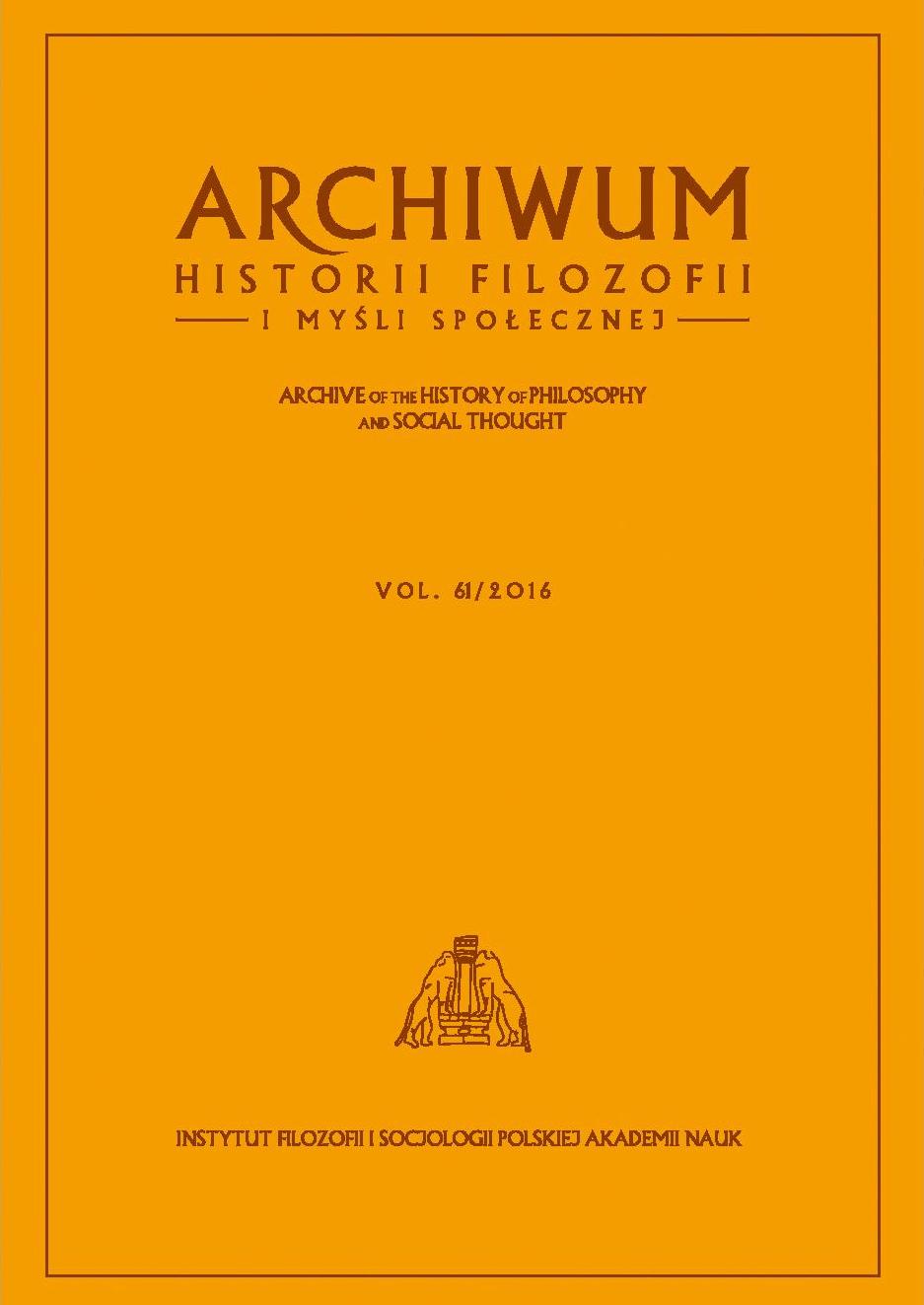Doświadczenie źródłowe z perspektywy klasycznej filozofii indyjskiej (sāṃkhya-yoga)
The Source Experience in the Classical Indian Philosophy Approach (Sāṃkhya-Yoga)
Author(s): Marzenna JakubczakSubject(s): Philosophy, Language and Literature Studies, Philosophical Traditions, Ancient Philosphy
Published by: Instytut Filozofii i Socjologii Polskiej Akademii Nauk
Keywords: Indian philosophy; Sāṃkhya; Yoga; darśana; cognitive insight; source experience; communicating knowledge
Summary/Abstract: The author of this paper discusses the source experience defined in terms of the ancient Indian philosophy. She focuses on two out of six mainstream Hindu philosophical schools, Sāṃkhya and Yoga. While doing so the author refers to the oldest preserved texts of this classical tradition, namely Yogasūtra c. 3rd CE and Sāṃkhyakārikā 5th CE, together with their most authoritative commentaries. First, three major connotations of darśana, the Sanskrit equivalent of φιλοσοφια, are introduced and contextualised appropriately for the comparative study of source experience. Then, three means of knowledge (pramāṇa-s) as well as the purpose of search for source experience are explained. Next, a specific understanding of source experience in the context of Sāṃkhya-Yoga is discussed to reveal both its contents and the reasons for apophatic formulation of the liberating insight. The self-knowledge and true knowledge both result from source experience based on distinguished discernment (vivekakhyāti) between “I”/ego and the self, gained during the multistage meditative absorption (samādhi). The analysis of discriminative cognition is followed by reconstruction of the arguments offered by the author of Sāṃkhyakārikā in favour of the existence of the self (puruṣa), immutable, inactive, and opposed to the domain of nature (prakṛti) characterized as spontaneously active and creative, which includes empirical consciousness, or “I”. The last section is devoted to the issue of the possible communication of achieved knowledge and its application in the everyday life practice. In conclusion, it is claimed that in Indian philosophy there has been no clear distinction between the practical value of subjective cognitive insight and theoretical ambitions of philosophy, which is why many authors of classical treatises are also recognised as eminent sapiential mentors. Oft en, especially in the texts of Yoga, Nyāyā and Buddhism philosophy is associated with therapy and philosophical exposition of the “cognitive ailments” is compared to medical treatment.
Journal: Archiwum Historii Filozofii i Myśli Społecznej
- Issue Year: 61/2016
- Issue No: 61
- Page Range: 41-58
- Page Count: 18
- Language: Polish

